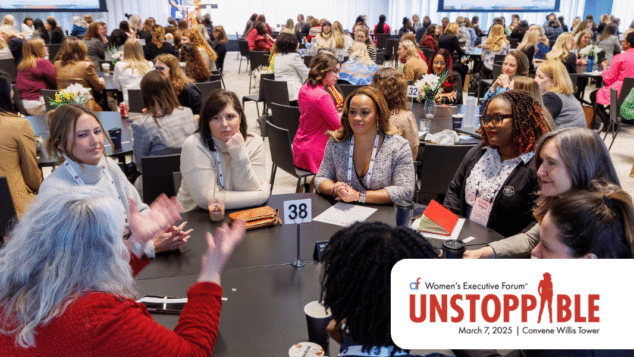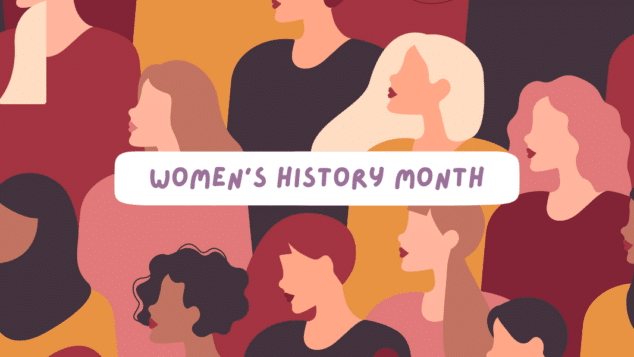Tips for Creating a Welcoming Meeting Environment

Of the many ways that associations foster community and build connections, the most visible is the annual meeting. From education to exhibits, receptions to research, annual meetings offer compelling engagement opportunities and often prove to be the “can’t miss” event on a professional’s calendar.
But convincing someone to return year after year is the result of more than just good marketing and site selection. Associations have to work to ensure a positive experience for all attendees, especially those who might need extra help or attention because of accessibility challenges. To learn more about ways to ensure a Welcoming Environment® for meeting attendees, FORUM connected for a Q&A with David Dikter, CEO of the Assistive Technology Industry Association (ATIA), an organization for manufacturers, sellers and providers of products, equipment and systems that enhance working and daily living for individuals with disabilities. ATIA hosts an annual meeting each year for users of these products, many of whom have disabilities.
FORUM: What are some things that associations should be aware of from a fundamental perspective that you’ve already known for a long time, just based on who you serve as members and the attendees of your annual meeting?
Dikter: I think associations need to start with an understanding of what accessibility means, and asking the question about how we can ensure that our systems, our hotels and our event platform, which is everything from technology to customer support, are accessible. I don’t just think about ADA (Americans with Disabilities Act) requirements when I think of facilities. I think way beyond that. So we start with just the event website itself and the platforms that many companies use. Are those websites accessible?
FORUM: How do you ensure a good experience for your attendees when you’re working with so many other vendor partners?
Dikter: Most hotels and convention centers today meet the base standards of ADA, but we need to focus on far more than that. We will negotiate that the hotel and convention center will accommodate an accessibility audit of their facilities. We then hire accessibility auditors, people who are, in fact, disabled themselves, and who go out as a team. Somebody might be visually impaired, somebody might be in a wheelchair, and we send them out and ask them to tell us everything. From the minute they leave their house or business to their experience at the airport to what happens at the hotel, we want to know what they experienced. Our hotels have been wonderfully accommodating in making changes to their facilities as a result of these audits.
FORUM: What are some examples of accommodations that you incorporate into your welcoming environment?
Dikter: For example, let’s say you use a tablet to collect a credit card payment and a signature from your customer as they check in. Well, if somebody’s blind, they’re not going to know where to sign. We provide signature guides, and we’ve asked the hotel to always have them available, especially when we’re there, so somebody who’s blind can feel the box and it makes it easier for them to sign. So, it’s really subtle things that make customers feel welcomed and acknowledged, whether they are someone who’s in a wheelchair, or a power wheelchair, or they’re blind or have low vision, or someone who doesn’t communicate or speak with their own voice.
FORUM: You obviously have foresight based on your experience and more ability to anticipate a lot of things, but what can a typical association do if an issue comes up that they have not foreseen?
Dikter: The best thing that any association can do is be prepared. There’s enough information online about accessible meetings and how to be prepared. There are a lot of lists out there. But everyone on the staff team needs to feel empowered to figure out how to accommodate customers and take the time to do it. At the beginning of our show, we do disability sensitivity training, and this is something anyone can do with their own shows. But if you’re asking how do you respond to the challenges that we face right there on site, I’d say the first thing is to listen carefully and then ask the right question. Probably my biggest mantra with my team at an event is, “You may be busy with five million things on site, and you may be ragged and exhausted, but if a customer asks you a question, stop and do what needs to be done to help.”
FORUM: And then that question goes on the list for things to consider and anticipate for next year?
Dikter: Yes. I don’t think you ever achieve 100% accessibility. There are always improvements that can be made.
Speakers become an extension of your organization when they are selected to present at your conference. Here are some reminders that you can share with your presenters to help ensure they will make their own sessions accessible to all of you attendees:
- Make handouts accessible (i.e., avoid paper handouts).
- If closed captioning isn’t available, use built-in tools within PowerPoint.
- Always repeat audience questions.
- Always introduce yourself to an interpreter, and if your session is technical, provide vocabulary or a set of terms to interpreters in advance.
Tags
Related Articles
Tips for Creating a Welcoming Meeting Environment
Creating a truly inclusive annual meeting means going beyond ADA compliance—discover how one association builds...
POV: My First Time at Women’s Executive Forum™ Was Inspiring and Invigorating
A first-time attendee of the Women’s Executive Forum 2025 reflects on the event’s inspiring energy,...
It’s Not Too Late! Celebrate Women’s History Month in March
Celebrate Women's History Month in Chicago with these five impactful ideas to honor, empower, and...




